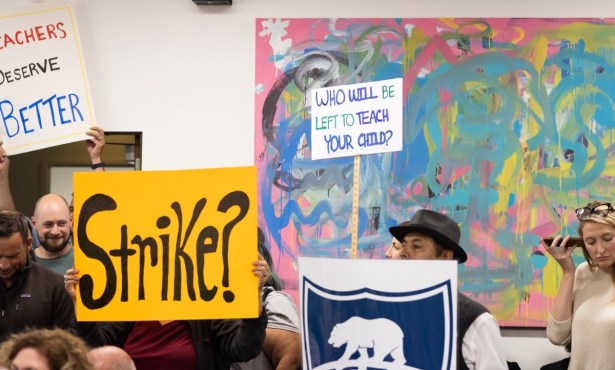From Free to Fees?
Controversy Swirls as City College Adult Education Eyes Major Rate Hike
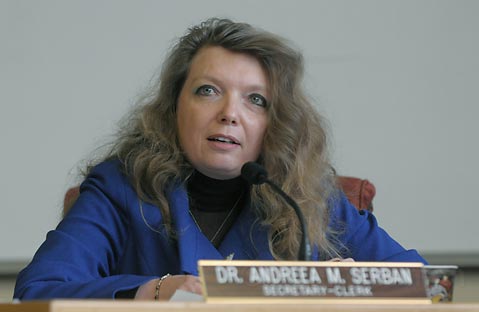
When something goes from being free to costing a couple hundred dollars seemingly overnight, there is sure be some consumer outrage. Such was the case at Santa Barbara City College’s Board of Trustees meeting on Thursday afternoon as tentative plans to drastically raise enrollment fees for several dozen — and highly popular — adult education classes were on the menu for discussion thanks to the state’s still unfolding fiscal nightmare. More than a 100 concerned teachers and students turned out to cry foul about the both the plan itself as well as the fast-tracked process by which the idea has been coming to fruition. As Norm Gutshall, an Adult Ed student and teacher for over 30 years, passionately told the trustees, “I know that the state is hurting — the whole country is hurting — but my class cannot go from free to $150 just like that…If we just asses these prices we are going to lose students and we are going to close classes.”
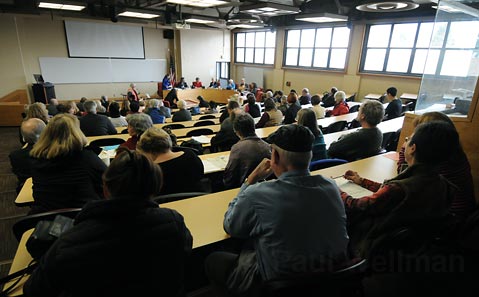
City College administrators have been under fire since last fall for their handling of how to reconcile nearly $10 million in required cuts from their general fund (over the past two years and coming from both their credit and non-credit based sides of the school) with the immensely popular, mostly free, and roughly 20,000 student-strong continuing education program. Using a blend of remedies that included a reduction of course offerings (about 100, or 13 percent, of their classes were cut for the fall quarter before being mostly restored for the winter quarter), shortening the winter quarter to seven weeks instead of eight, raising the class size minimum from 17 students to 20, and reducing the number of continuing education hourly employees, the administration was able to account for nearly half of the money they needed to save to keep Adult Ed fiscally afloat in 2009-10.
Needing to close that gap further, administrators and bean counters — acting in part at the suggestions of students offered during public workshops on the budget held earlier this winter — began looking at more than 60 courses, ranging from ceramics and knitting to jewelry making and writing workshops, to be converted from free (i.e. state-funded) to fee-based for the soon-to-start spring quarter. With a vote of approval needed from the Board of Trustees to make such changes real, the latest incarnation of the plan was presented on Thursday and, at least according to teachers and students — the vast majority of which had only found out about the discussion less than a week prior — things aren’t looking pretty.

“We know we have to convert classes [to fee-based], but this just isn’t the way to do it,” testified Continuing Education Instructors’ Association President Sally Saenger on Thursday before adding, “I have been here for 27 years and, up until last week, I hadn’t been consulted once about this. With all due respect, the main two people who were in charge of proposing these changes have been with SBCC Adult Ed for less than one-and-a-half years.”
According to Dr. Ofelia Arellano, SBCC head of Adult Ed (and one of the administrators that Saenger was referring to), the proposed rate jumps — which range from $4 per student per class to $145 per class — and the specific classes picked to be assessed are based off three things: First is the fact that the state’s community college chancellor’s office actually doesn’t allow state funding to subsidize several of the college’s current “free” adult education classes. Specifically, according to Arellano, most studio-based and workshop style classes haven’t been eligible for their free status since 2005 despite the fact that SBCC has been delivering them as such. “We cannot continue to report these courses to the state for apportionment [even without the budget cuts],” explained the Arellano. Secondly, staff investigated what other California community colleges charge for similar types of course offerings help them get a baseline.
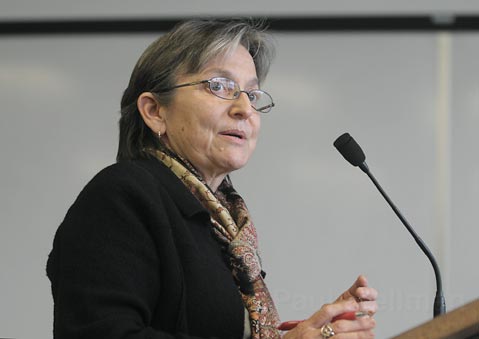
Lastly, and most importantly, school controller Leslie Griffin has spent the past month doing a multi-phased and, according to her, unprecedented cost analysis of just how much each class offered costs the school. Looking at everything from instructor and teacher aid salaries to electricity bills, maintenance costs, and other assorted operational expenses, Griffin determined that continuing education — based off of 2009’ s roughly 2,500 course offerings — costs the school a total of $10.2 million to run.
For their part, Saenger and the other instructors who spoke during public comment aren’t so much upset with moving from free to fees, but rather are concerned with how quick it is becoming a reality and how exactly it is being decided upon. In short, it is an issue of transparency, equity, and input. Having conducted an informal survey of his students this week about their likelihood of re-enrolling if it would cost $150 plus the typical $50 material fee to take Southwestern-style jewelry making this spring, Gutshall told the trustees on Thursday that only one person responded affirmatively.
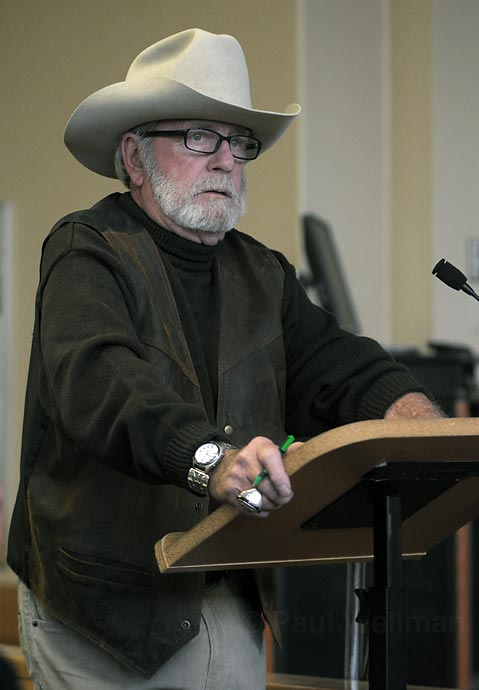
Further troubling Gutshall was the “hard to understand discrepancy” in possible fees — sometimes as much as $45 — between similar courses. Griffin noted after the meeting that the latter observation was “ a helpful thing to hear.” “Now I can go back and check my methodologies and revise them if I need to,” said Griffin, adding that things have “been moving pretty fast.” In fact, the class fees quoted on Thursday were actually significantly less than those floated just three days earlier at SBCC’s Fiscal Committee meeting. At that time, for example, Gutshall’s class was going to cost $268 for the quarter plus the materials expenses; now it is down to $150.
As for the administration, SBCC President Andreea Serban opined during the meeting that, “The effort here for everybody is to continue to offer as many courses as possible.” Adding later, after public comments suggested the administration might not to be fully appreciative of the importance of the continuing education community, that, “We are proud of what we have [with Adult Ed] and we don’t want to lose it.” According to Serban, even if the fee proposals get approved, more than 90% of the courses offered each year will, at least for now, remain free.
The board is expected to revisit the debate at their next meeting on February 25.


